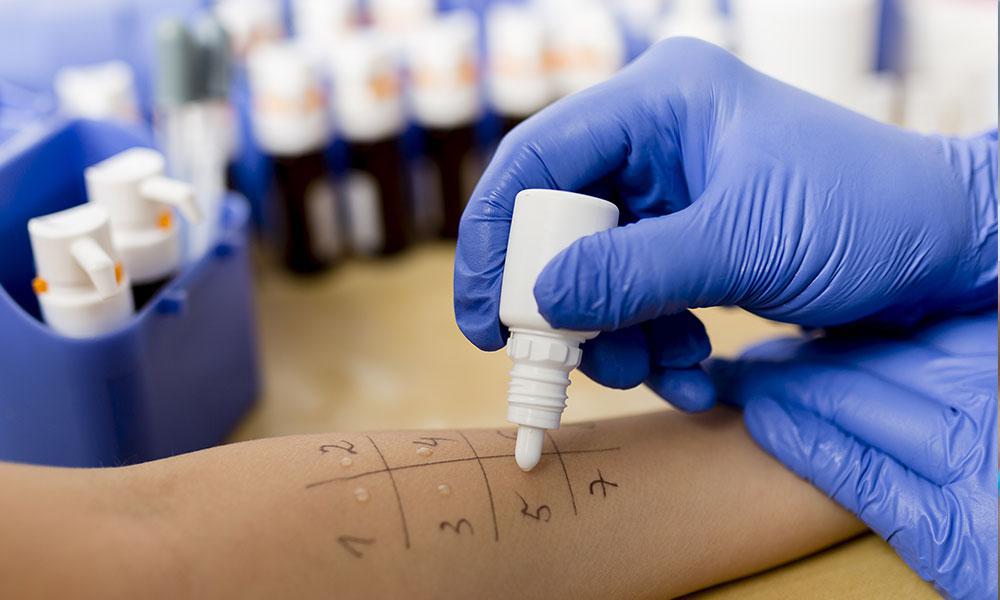Vitamin Packs Pro Vitamins personalized just for you. Do your medications and vitamins get along? Read on to learn more about our new researched based and doctor and nutritionist formulated vitamin packs.

What is Allergy Testing All About?
Adults and children can develop allergy symptoms at any age. The symptoms represent the body’s reaction to a particular substance. A substance that can cause an allergic reaction is called an allergen. Allergy testing helps your doctor identify which allergen you are reacting to. Knowing just what you are allergic to will allow your doctor to develop a treatment plan to specifically address your symptoms.
Should I Be Tested?
Persisting allergy symptoms that do not resolve with routine treatment deserve allergy testing. Many people find that with more precise treatment of their allergies, they can have a better quality of life with reduction or elimination of their symptoms and allergy medication. The persistence of any of these symptoms should prompt you to ask for a referral for allergy testing:
Allergic reactions to food should be properly diagnosed by testing. Symptoms include:
Types of Allergy Tests
A number of different allergens can cause reactions ranging from respiratory problems or skin conditions to life-threatening anaphylaxis. Most common allergens include
Skin Tests: Skin testing is easily performed in the clinic and can be used to detect allergies to multiple environmental allergens and food allergens. To perform the test, a small amount of allergen is placed on the skin, and the area is pricked or scratched. A little swelling or itching at the site may occur if you react to the allergen. Results are available in 15 minutes.
Intradermal Tests: Intradermal tests may be indicated when skin tests are not conclusive. To perform these tests, a small of amount of allergen is injected under the skin with a syringe.
Blood Tests: Patients may be sent to a lab for a Serum Immunocap IgE test. The test is done with a blood draw that is then is exposed to the various allergens requested to determine the presence of IgE (allergic antibodies). Results are not as readily available, and the cost may be more. Serum Immunocap tests are especially useful when skin testing cannot be done for some reason.
Patch Tests: Patients with a skin condition called Allergic Contact Dermatitis can be evaluated for possible allergic reaction to a variety of substances. Patch Testing involves placement of a panel of substances on the back. The panel is kept in place and read on 2 subsequent office visits. This test is done in our office and can be very helpful for patients suffering with contact dermatitis.
Allergy testing is a safe and accessible way for you to understand what is triggering allergy symptoms. The findings provide a valuable tool for your doctor to successfully treat allergies and significantly improve quality of life. Dr. Herrscher, Dr. Saifi and our team at AIR Care are available to help you with your allergies today.
You Might Also Enjoy...
Vitamin Packs Pro Vitamins personalized just for you. Do your medications and vitamins get along? Read on to learn more about our new researched based and doctor and nutritionist formulated vitamin packs.
Do you suffer from itchy, red, and bumpy hives? Learning what triggers a sudden hive outbreak can help you avoid these unsightly welts. Learn the five most common hive triggers and how to treat hive symptoms.
If you suffer from allergy-like symptoms — hives, shortness of breath, and nausea — but don’t find relief from allergy medicines, you may have a mast cell disorder. Find out how a mast cell disorder can affect your body and how to treat it.
If you want long-term relief from allergy symptoms but don’t want to shut yourself indoors or take medication year-round, immunotherapy may be the right treatment for you. Find out what to expect from immunotherapy.
Do you suspect you or your child has a food allergy? Learn the symptoms and the most common foods that trigger an allergy attack and, most importantly, what you can do to manage and prevent food allergy attacks.
Are you having trouble breathing? Do you cough frequently at night? Don’t waste another breath. See a doctor to find out if you have asthma so you can get treatment and live a normal, active life.